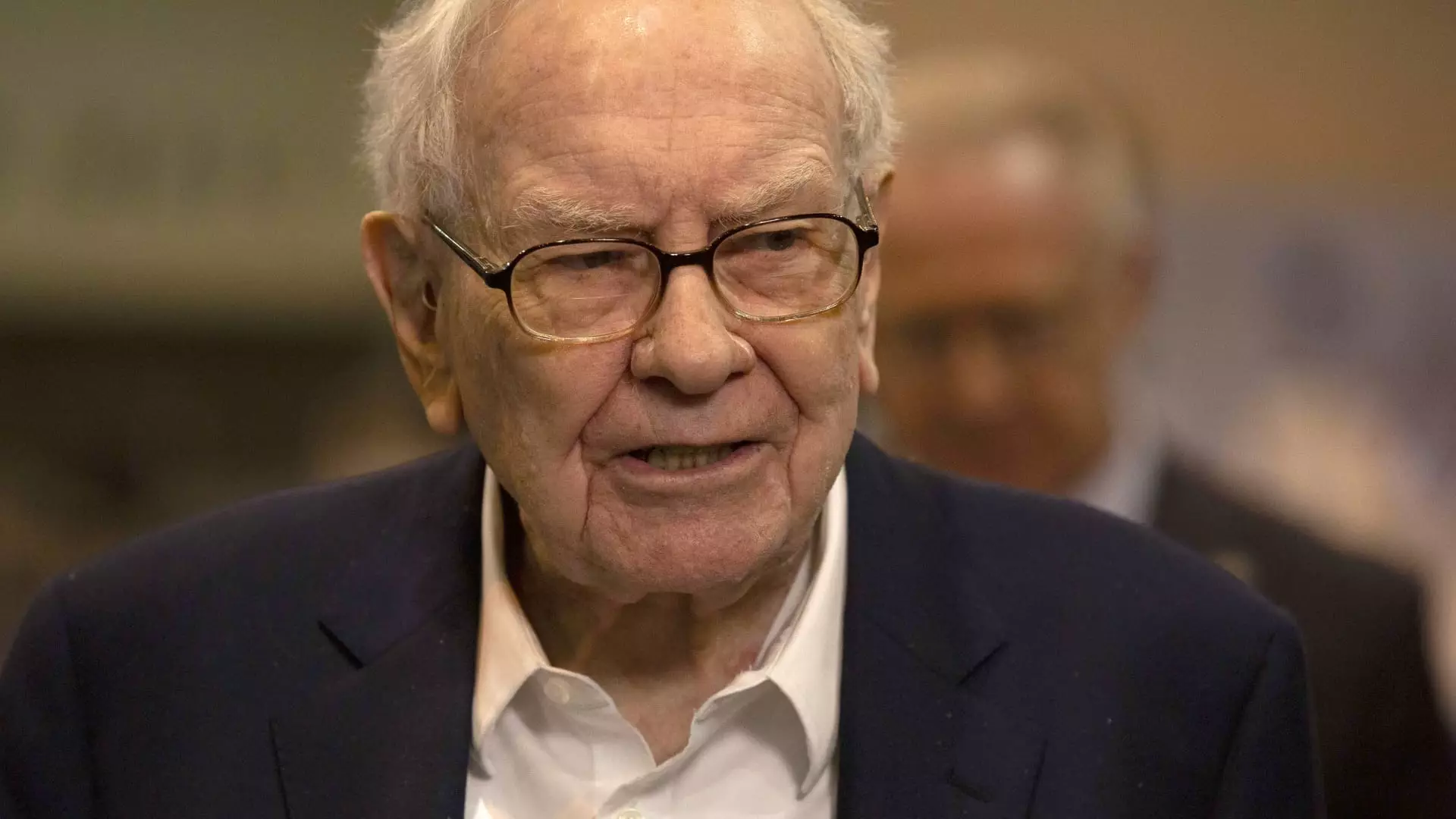Berkshire Hathaway has once again captivated the financial world, showcasing a staggering cash reserve that climbed to an unprecedented $325.2 billion by the end of September 2023. This rise in capital, noted in their recent earnings report, represents a considerable increase from the $276.9 billion recorded in the previous quarter. The company’s strategy under Warren Buffett’s leadership continues to unfold as it operates in a complex and fluctuating market landscape. Rather than embracing aggressive buying, Buffett has leaned towards selling, raising questions about his outlook for the economy and investments.
In an intriguing turn of events, Berkshire Hathaway has opted to reduce its significant stakes in high-profile companies such as Apple and Bank of America. Specifically, the company has divested approximately 25% of its Apple holdings over the last quarter, marking the fourth consecutive quarter of similar strategic reductions. Additionally, the company has reaped substantial profits from selling its long-time investment in Bank of America, totaling more than $10 billion since mid-July.
Warren Buffett’s tendency to sell off large equity positions may appear counterintuitive, especially given the overall strength of the stock market this year. However, this selling spree reflects a cautious approach that underscores Buffett’s famous principle of investing based on intrinsic value. By not repurchasing any shares during this period, it seems he believes that the current share prices do not meet his stringent criteria for investment.
Despite the significant cash accumulation and stock sales, Berkshire Hathaway’s operating earnings did not meet market expectations, totaling $10.1 billion for the third quarter—a 6% decline year-over-year. The decrease has been attributed to weak performance in insurance underwriting, one of the company’s core sectors. While the operating income remains robust, this drop indicates potential headwinds that could affect the company’s future earnings.
As the broader market indexes such as the S&P 500 have rallied—showing returns of around 20.1% this year, compared to Berkshire’s impressive 25% gain—many observers are left questioning Buffett’s seemingly conservative move amid a surging market. However, it may signal a prudent evaluation of fundamental economic indicators that could elicit volatility in the near future.
The recent increase in the 10-year Treasury yield, which has exceeded 4%, coupled with existing economic concerns such as an expanding fiscal deficit, signals a potentially volatile financial landscape. Renowned investors like Paul Tudor Jones have pointed out the impending risks associated with the federal government’s reluctance to address soaring expenditures. In such an environment, Buffett’s strategy of liquidating substantial equity stakes may indicate an anticipation of tighter economic conditions and an effort to preserve capital.
Moreover, Buffett has expressed concerns regarding potential tax reforms that could impact capital gains rates. His selling may be a preemptive step to mitigate the tax burdens expected if legislative changes take shape. This sentiment echoes the cautious approach that has characterized much of Buffett’s investment philosophy throughout his career—making calculated moves while closely monitoring broader economic signals.
As Berkshire Hathaway’s cash reserves continue to swell, the company’s position as one of the largest and most powerful conglomerates in the world remains unchallenged. However, this growing cash pile begs the question of how Buffett and his team plan to leverage this capital moving forward. With liquidity levels at historic highs, there is potential for significant investment opportunities, especially in a market that, while robust, shows signs of fragility.
Ultimately, Buffett’s strategies in Q3 reveal more than mere stock transactions; they encapsulate a broader philosophy rooted in the need for vigilance and adaptability in changing economic climates. As investors look to the future, they will undoubtedly keep a watchful eye on how Berkshire Hathaway navigates these complexities, crafted by the wisdom of a 94-year-old investing sage.


Leave a Reply